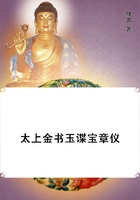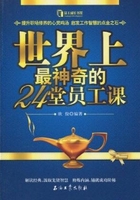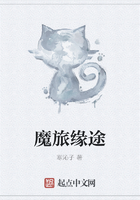SOCRATES: I dare say; and you shall tell me them at some other time when Ihave leisure. But just at present I would rather hear from you a more precise answer, which you have not as yet given, my friend, to the question, What is 'piety'? When asked, you only replied, Doing as you do, charging your father with murder.
EUTHYPHRO: And what I said was true, Socrates.
SOCRATES: No doubt, Euthyphro; but you would admit that there are many other pious acts?
EUTHYPHRO: There are.
SOCRATES: Remember that I did not ask you to give me two or three examples of piety, but to explain the general idea which makes all pious things to be pious. Do you not recollect that there was one idea which made the impious impious, and the pious pious?
EUTHYPHRO: I remember.
SOCRATES: Tell me what is the nature of this idea, and then I shall have a standard to which I may look, and by which I may measure actions, whether yours or those of any one else, and then I shall be able to say that such and such an action is pious, such another impious.
EUTHYPHRO: I will tell you, if you like.
SOCRATES: I should very much like.
EUTHYPHRO: Piety, then, is that which is dear to the gods, and impiety is that which is not dear to them.
SOCRATES: Very good, Euthyphro; you have now given me the sort of answer which I wanted. But whether what you say is true or not I cannot as yet tell, although I make no doubt that you will prove the truth of your words.
EUTHYPHRO: Of course.
SOCRATES: Come, then, and let us examine what we are saying. That thing or person which is dear to the gods is pious, and that thing or person which is hateful to the gods is impious, these two being the extreme opposites of one another. Was not that said?
EUTHYPHRO: It was.
SOCRATES: And well said?
EUTHYPHRO: Yes, Socrates, I thought so; it was certainly said.
SOCRATES: And further, Euthyphro, the gods were admitted to have enmities and hatreds and differences?
EUTHYPHRO: Yes, that was also said.
SOCRATES: And what sort of difference creates enmity and anger? Suppose for example that you and I, my good friend, differ about a number; do differences of this sort make us enemies and set us at variance with one another? Do we not go at once to arithmetic, and put an end to them by a sum?
EUTHYPHRO: True.
SOCRATES: Or suppose that we differ about magnitudes, do we not quickly end the differences by measuring?
EUTHYPHRO: Very true.
SOCRATES: And we end a controversy about heavy and light by resorting to a weighing machine?
EUTHYPHRO: To be sure.
SOCRATES: But what differences are there which cannot be thus decided, and which therefore make us angry and set us at enmity with one another? Idare say the answer does not occur to you at the moment, and therefore Iwill suggest that these enmities arise when the matters of difference are the just and unjust, good and evil, honourable and dishonourable. Are not these the points about which men differ, and about which when we are unable satisfactorily to decide our differences, you and I and all of us quarrel, when we do quarrel? (Compare Alcib.)EUTHYPHRO: Yes, Socrates, the nature of the differences about which we quarrel is such as you describe.
SOCRATES: And the quarrels of the gods, noble Euthyphro, when they occur, are of a like nature?
EUTHYPHRO: Certainly they are.
SOCRATES: They have differences of opinion, as you say, about good and evil, just and unjust, honourable and dishonourable: there would have been no quarrels among them, if there had been no such differences--would there now?
EUTHYPHRO: You are quite right.
SOCRATES: Does not every man love that which he deems noble and just and good, and hate the opposite of them?
EUTHYPHRO: Very true.
SOCRATES: But, as you say, people regard the same things, some as just and others as unjust,--about these they dispute; and so there arise wars and fightings among them.
EUTHYPHRO: Very true.
SOCRATES: Then the same things are hated by the gods and loved by the gods, and are both hateful and dear to them?
EUTHYPHRO: True.
SOCRATES: And upon this view the same things, Euthyphro, will be pious and also impious?
EUTHYPHRO: So I should suppose.
SOCRATES: Then, my friend, I remark with surprise that you have not answered the question which I asked. For I certainly did not ask you to tell me what action is both pious and impious: but now it would seem that what is loved by the gods is also hated by them. And therefore, Euthyphro, in thus chastising your father you may very likely be doing what is agreeable to Zeus but disagreeable to Cronos or Uranus, and what is acceptable to Hephaestus but unacceptable to Here, and there may be other gods who have similar differences of opinion.
EUTHYPHRO: But I believe, Socrates, that all the gods would be agreed as to the propriety of punishing a murderer: there would be no difference of opinion about that.
SOCRATES: Well, but speaking of men, Euthyphro, did you ever hear any one arguing that a murderer or any sort of evil-doer ought to be let off?
EUTHYPHRO: I should rather say that these are the questions which they are always arguing, especially in courts of law: they commit all sorts of crimes, and there is nothing which they will not do or say in their own defence.
SOCRATES: But do they admit their guilt, Euthyphro, and yet say that they ought not to be punished?
EUTHYPHRO: No; they do not.
SOCRATES: Then there are some things which they do not venture to say and do: for they do not venture to argue that the guilty are to be unpunished, but they deny their guilt, do they not?
EUTHYPHRO: Yes.
SOCRATES: Then they do not argue that the evil-doer should not be punished, but they argue about the fact of who the evil-doer is, and what he did and when?
EUTHYPHRO: True.
SOCRATES: And the gods are in the same case, if as you assert they quarrel about just and unjust, and some of them say while others deny that injustice is done among them. For surely neither God nor man will ever venture to say that the doer of injustice is not to be punished?
EUTHYPHRO: That is true, Socrates, in the main.















